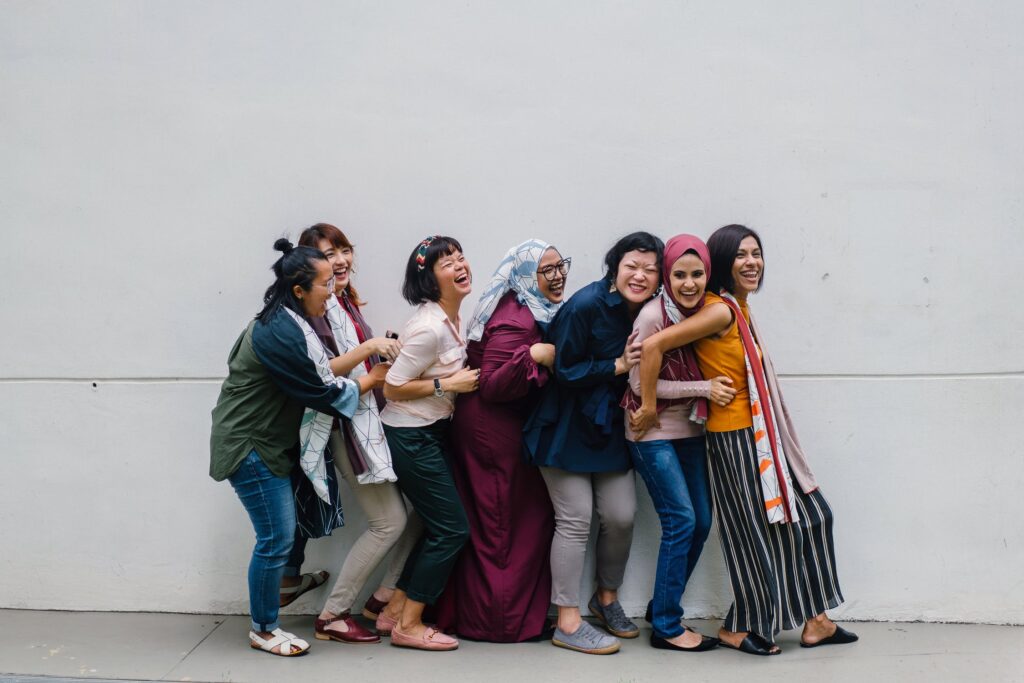By Marie Haaland // SWNS Staff
NEWS COPY w/ INFOGRAPHICS + VIDEO
For women worried about aging, there’s at least one benefit to getting older — more confidence.
A new survey of 2,000 American women aged 30 and older examined the changes in respondents’ self-confidence throughout their lives, and it revealed two-thirds (63%) believe the older they are, the more confident they’ll be.
For women whose confidence increases with age, 63% said this is a result of caring less about what others think — with the average woman feeling most comfortable in her skin at age 32.
Additionally, 45% feel more settled in their life, and 35% are more likely to embrace the changes in their looks as they grow older.
But regardless of their confidence levels, half of the women surveyed (51%) said aging and the unknowns that come with it regularly causes them stress.
Interestingly enough, that sentiment was higher among younger women — as they age, the stress seems to decrease (58% for women 30 to 40, vs. 40% for those 57+).
Conducted by OnePoll on behalf of Viviscal Hair Growth Supplements, the study found women’s confidence isn’t infallible, and many women still have insecurities as they get older.
When looking in the mirror, the average woman only likes what she sees 39% of the time.
When it comes to what they’re most self-conscious about, their skin (46%) and their teeth (45%) came out on top, followed closely by their hair (44%).
And these concerns may have grown throughout the COVID-19 pandemic. Many women (53%) reported experiencing a physical impact from the stress of the past year.
For those respondents, stress caused changes to their weight (58%) and more acne breakouts (35%).
That’s in addition to graying (33%) or thinning hair (31%) and oily skin (27%). A quarter of respondents
have even seen their hair fall out as a result of the stress.
“The effects of stress can manifest mentally and physically,” said Dr. Elizabeth Houshmand, double-board certified dermatologist. “This past year, we saw an increase in those physical signs of stress, including hair loss and thinning. With stress-induced hair loss affecting so many women, Viviscal is dedicated to enabling women to reclaim their hair.”
But respondents aren’t letting these insecurities get them down; instead, they’re working to make positive changes for their health.
The results revealed 47% of women surveyed changed their self-care routine as a result of the pandemic.
Of respondents who did change their self-care practices, 46% did so because they wanted to feel healthier, while 43% wanted to help their mental health while staying home.
How did their self-care routine shift? For women with a new routine, they’re getting extra sleep (39%), taking more vitamins and supplements (38%), and eating a more balanced diet (37%).
And six in 10 women surveyed said self-care helped to boost their confidence during the pandemic.
“This past year and a half, women’s self-esteem and emotional stamina were tested,” said Stacey Ramstedt, vice president of marketing, specialty hair care. “During trying times, we saw how self-care can positively impact how we look and feel. Self-care took on an important role in women’s routines and we predict that those rituals will continue to evolve, even after the pandemic, since they help to build a woman’s confidence.”
WHY ARE WOMEN MORE CONFIDENT AS THEY AGE?
- Care less about what others think 63%
- Feel more settled in life 45%
- More likely to embrace changes in their looks 35%
- More support from friends or family 26%
- Know they’re good at their job 25%
WHAT PHYSICAL SIGNS OF STRESS HAVE WOMEN SEEN OVER THE PAST YEAR?
- Changes in weight (gain or loss) 58%
- More breakouts 35%
- Graying hair 33%
- Thinning hair 31%
- Oily skin 27%
- Hair’s been falling out 25%
